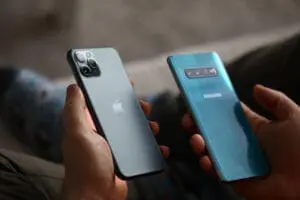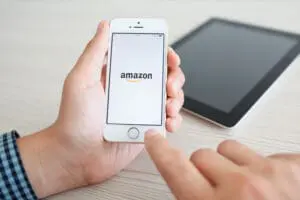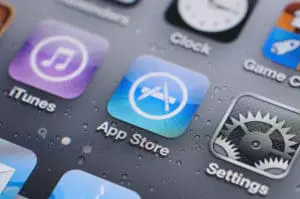30 million UK smartphone owners could be due £480m payout
Which? takes legal action for 30m UK consumers who could be owed money after being overcharged for their smartphones.
Which? takes legal action for 30m UK consumers who could be owed money after being overcharged for their smartphones. It accuses Qualcomm, a multibillion dollar US tech company, of overcharging Apple and Samsung for essential 4G technology. Sign up to stay updated.
Anabel Hoult, CEO of Which?, said:
‘We believe Qualcomm’s practices are anticompetitive and have so far taken around £480 million from UK consumers’ pockets – this needs to stop. We are sending a clear warning that if companies like Qualcomm indulge in manipulative practices which harm consumers, Which? is prepared to take action.’

About the Which? smartphone claim
Qualcomm is facing a £480 million payout to UK consumers after Which? launched a lawsuit accusing it of breaking competition laws. The suit alleges Qualcommabused its dominant market position to charge smartphone manufacturers inflated fees for technology that connects phones to 4G networks.
Which? says these costs are being passed onto consumers who end up paying more than they should for their smartphones. It is seeking damages for 30m affected Apple and Samsung smartphone owners who could be owed up to £30 each.
Which? is accusing Qualcomm of abusing its dominance in markets for smartphone chipsets and essential patents. It says Qualcomm is refusing to licence its patents to other competing chipset manufacturers or to supply chipsets to smartphone manufacturers, like Apple and Samsung, unless they obtain a separate licence and pay substantial royalties to Qualcomm.
Legal team behind the claim
Which? has signed up law firm Hausfeld & Co, LLP to represent it in this claim. It is being supported to take the claim by barristers at Monckton Chambers.
Anthony Maton, Hausfeld Global Vice Chair and London Managing Partner, said: ‘This claim is about seeking redress for millions of consumers who are the ultimate victims of Qualcomm’s anticompetitive conduct and who have paid too much for their smartphones as a result.’
Which? was given permission by the Competition Appeal tribunal to take action against Qualcomm on 17 May 2022. It is urging Qualcomm to settle the claim without the need for litigation by offering consumers their money back.
Who is eligible for compensation?
Which?’s claim automatically includes people who bought Apple or Samsung smartphones, either directly from the manufacturer or from a network operator or a smartphone retailer, since 1 October 2015.
If the case is won in the Competition Appeal Tribunal affected consumers could be entitled to between £5 and £30 in damages. This will depend on the number of models of phones bought. Which? estimates most people would get back £17.
Sign up to Consumer Voice to stay updated as the claim progresses.
Qualcomm under investigation worldwide
Qualcomm has already been investigated, and in some cases fined, by regulators and courts around the world for similar anti competitive behaviour. Similar legal action has been taken against Qualcomm in Canada and the US.
Qualcomm has been fined by the European Commission and authorities in South Korea and Taiwan. Some of these fines have been overturned on appeal, and some continue to be litigated.
Qualcomm argues the case has ‘no basis’
Qualcomm says the case has ‘no basis’. A spokesperson says:
‘As plaintiffs are well aware, claims were effectively put to rest last summer by a unanimous panel of judges at the Ninth Circuit Court of Appeals in the United States.’
Related claims

Qualcomm
Global chip manufacturer, Qualcomm, is accused of overcharging for its smartphone technology and owing users £480m. Sign up to stay updated.

Amazon & Apple
Amazon and Apple accused of striking secret deal to increase the cost of Apple products costing UK consumers £500 million. Sign up for updates.

Apple App Store
Apple faces allegations of excessive App Store charges of £1.5bn. Sign up to stay updated if you bought apps on your iPhone or iPad since 1 October 2015.


